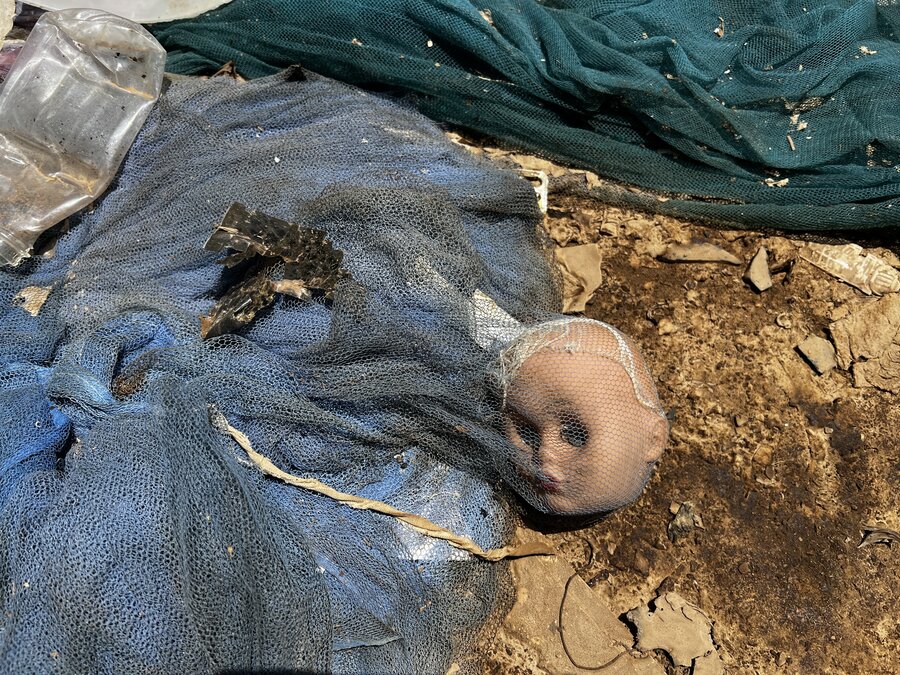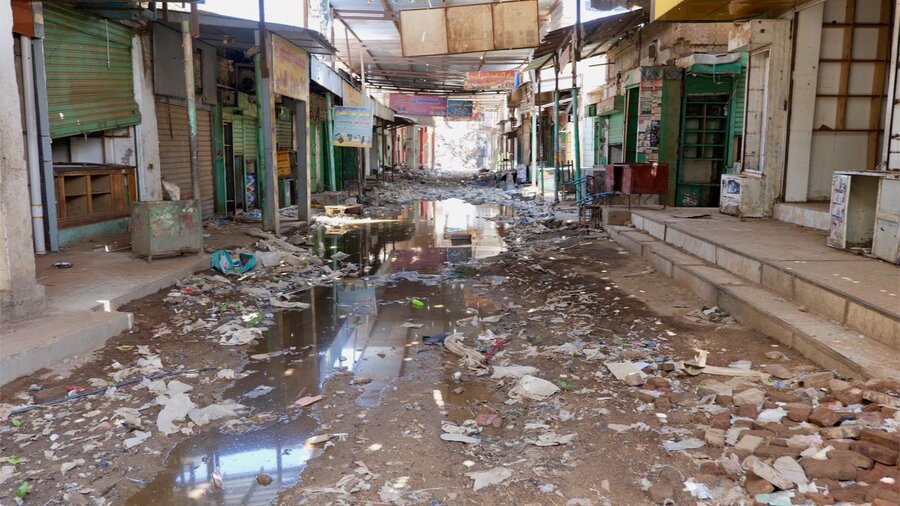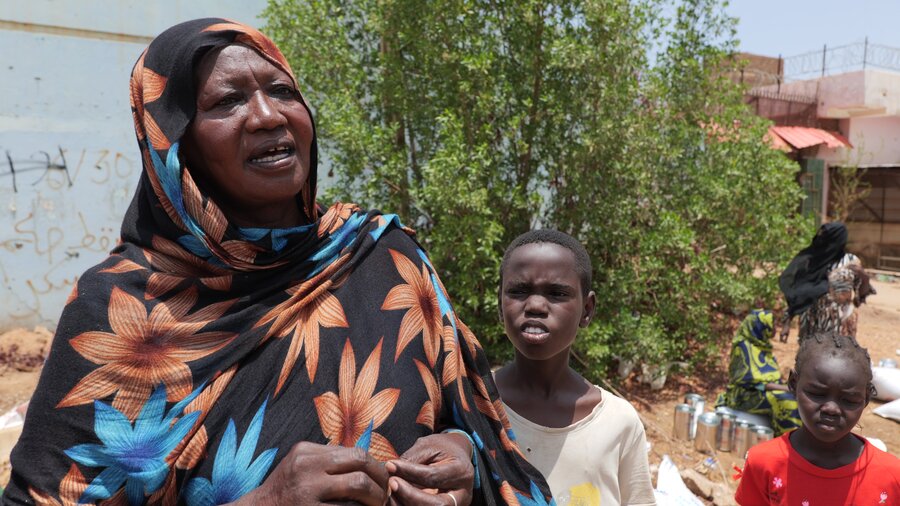The Backstory: A broken doll in broken Sudan

Walking through Khartoum’s shattered streets a few weeks ago, I spotted this doll’s head — eyes wide open, red mouth eerily smiling — lost in the rubble of the city’s once-iconic Omdurman market.
I was part of a small team from the World Food Programme (WFP) that had driven for two days, across 800 kilometers of desert and hundreds of checkpoints, from sweltering Port Sudan to the country’s capital and epicenter of the brutal, grinding civil war. We had come to assist in WFP’s first food distribution in the Khartoum area since March: a two-month ration of rice, lentils, oil and salt for around 33,000 people.
During the visit, we also met with organizers of community kitchens WFP has begun supporting, visited WFP-assisted nutrition centers, and talked to the city’s many hungry residents who had not fled, despite the threat of violence. The sound of gun and mortar fire was a constant reminder of the precarious existence they face every day. As head of WFP’s emergency communications, my job is to capture and share their stories — and those of others caught up in conflict, climate or economic emergencies in the countries where we work— to a world distracted by its own daily struggles.
After more than 17 months of fighting, fears are growing of famine hitting Khartoum and other war-besieged parts of Sudan. Days after my visit, experts would confirm a famine outbreak hundreds of kilometers west: at the Zamzam camp for displaced people, in North Darfur.
These findings are a shocking reality check for us all — and for Sudan, once a major agricultural and oil exporter, whose capital boasted skyscrapers, luxury hotels and colorful bazaars.

Omdurman market, near the banks of the Nile River where the doll’s head lay, was no ordinary market. Pre-war, it was Sudan’s most important market, selling everything from food and refrigerator magnets, to camel saddles, incense and antiques. It was also a place where people for generations met and exchanged ideas, schemes and dreams. But fighting has silenced their voices, leaving broken lives and memories.
At the WFP food distribution, just a few blocks from the ruined market, it became clear the city’s most vulnerable had stayed behind, unable to join what is now the world’s largest displacement crisis. I saw blind people being led to collect their rations; families with young children using strollers to carry home bags of rice; the elderly hobbling along on crutches.
They’ve been cooped up for months, frequently in war-damaged shelters, jobless, hungry and isolated. They’ve lost their homes, families and friends.
Many seemed happy to be at the WFP distribution— not just to get precious food, but also to share their trauma.

“They blocked the streets and beat people,” says Maya, who once sold tea at Omdurman market, referring to the warring parties. “We couldn’t leave our houses for two, three days — sometimes not for a week. When we left, they beat us on the roads and took our money and food.”
Surprisingly, people are starting to return to Khartoum. Not because it’s safe or they have anything to go back to. The city lacks food, water, basic services. The fighting has not let up. But for many former residents, months of running from a spreading conflict has proven too much.
Like the discarded doll, they are now left staring at the ruins of a once-vibrant capital, waiting for a chance to put the pieces back together.
WFP’s emergency response in Sudan is made possible through contributions from our donors including the African Development Bank, Belgium, Canada, Cyprus, Czech Republic, the European Commission (ECHO), France, Germany, Greece, Hungary, Ireland, Italy, Japan, KS Relief, Kuwait, Luxembourg, Malta, Mohammed bin Rashid Al Maktoum Global Initiatives (MBRGI), Netherlands, Norway, South Korea, Slovenia, Spain, Sweden, Switzerland, Ukraine, the United Arab Emirates, the UN Central Emergency Relief Fund, and the United States of America.



